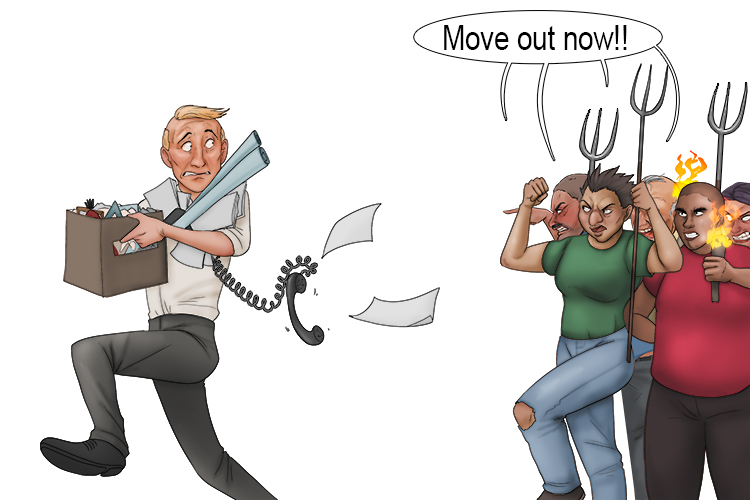Pressure Group – An organisation with a shared aim that seeks to influence the decision making of a company
(Pronounced preh-shuh groop)
To remember what pressure group means use the following mnemonic:
The pressure from the group (pressure group) of people influenced the company's decision to move out of town.

Also known as a special interest group or advocacy group, pressure groups are independent organisations that are not politically elected, but campaign to change the policy of companies and governments. Pressure groups can affect businesses in multiple ways. They may call for boycotts of a company for unethical business practices (e.g. ecological damage, unfair pay, poor workers' conditions), or they could lobby the government to achieve a change in the law, harming the industry and therefore the financial performance of a company.
Pressure groups can also change the way companies advertise, for example, pressure groups lobbied government officials in the UK to ensure that online betting adverts cannot be broadcast on television before 9 pm, limiting their exposure to young people.
Another example of a pressure group having an impact on the operations of a business/industry is the successful campaigns by the pressure group Action on Smoking and Health, active in the US and the UK. In 1971, their actions led to the banning of the advertisement of cigarettes on television in the USA, while the campaign to ban all smoking indoors in public places in the UK was successful in 2006. This had a big impact on the number of smokers, with numbers falling and therefore cigarette sales falling too, in both countries.
To form a pressure group, a few people get together and try to employ a variety of methods to promote and encourage people to join them by:
- Organising a demonstration
- Getting people to sign petitions
- Advertising in the media
- Publicity stunts
- Writing to government officials




